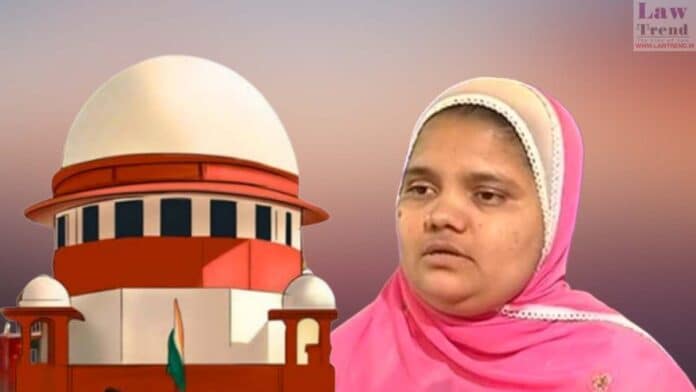The convicts in the Bilkis Bano gangrape case and murder of seven of her family members during the 2002 Gujarat riots told the Supreme Court on Wednesday that entertaining PILs by multiple people challenging their remission will open a “pandora’s box” and set a dangerous precedent.
Besides the petition filed by Bilkis Bano, several other PILs including one by CPI(M) leader Subhashini Ali, independent journalist Revati Laul and former vice-chancellor of Lucknow University Roop Rekha Verma have challenged the remission. Trinamool Congress (TMC) MP Mahua Moitra has also filed a PIL against the remission.
Challenging maintainability of the PILs, advocate Rishi Malhotra, appearing for one of the convicts, said no fundamental right of the petitioners has been violated and they are total strangers to the trial.
Malhotra said the PIL petitioners do not have a copy of the remission order and approached this court based on media reports.
“My lordships, entertaining PILs from third party not connected with the case will open floodgates and pandora’s box. Every remission granted now and then by any state to any other person will be challenged. This defies logic. If a victim comes to the court its understandable but not a third party.This would be a dangerous precedent,” Malhotra told a bench comprising justices BV Nagarathna and Ujjal Bhuyan.
Seeking dismissal of the PILs, the lawyer submitted that these are highly speculative in nature as they say the remission order is wrong even without annexing the administrative order.
Additional Solicitor General S V Raju, appearing for the Gujarat government, submitted that remission is essentially a reduction of sentence and no third party can have a say in it as the matter is between the court and the accused.
“No third party/strangers’ interference in criminal matters is permissible under the garb of PILs. Next, this is a misuse of public interest litigation and jurisdiction of this court. PIL petitioners are nothing but an interloper and a busybody,” he said.
Senior advocate Sidharth Luthra, appearing for one of the convicts, submitted that
third party interference is not permissible as ‘unnecessary’ interference in criminal cases may cause serious prejudice to the accused.
“It is for the victim to say whether contours of decision making have been correctly applied…Not for third-party interference.”
The hearing will continue on Thursday.
“Public outcry will not affect our judicial decisions,” the top court asserted on Tuesday, as it began weighing the legality of the remission granted to all the 11 convicts in the gangrape case.
The bench made it clear that agitations and society’s outcry will not have an effect on its decisions and that it will go only by the law.
The apex court was earlier told that the convicts chased Bilkis Bano with a “blood thirsty approach” to hunt Muslims and kill them.
It had on April 18 questioned the Gujarat government over the remission granted to the 11 convicts, saying the gravity of the offence should have been considered before showing leniency, and wondered if there was any application of mind. All of them had walked free on August 15, 2022.
Asking for reasons for the premature release of the convicts, the top court had also questioned frequent parole granted to them during their incarceration.
Also Read
“It (remission) is a kind of grace, which should be proportional to the crime,” it had said.
Terming Bilkis Bano’s gangrape and the murder of her family members a “horrendous” act, the apex court had on March 27 asked the Gujarat government whether uniform standards, as followed in other murder cases, were applied while granting remission to the convicts.
Bilkis Bano was 21 years old and five months pregnant when she was gang-raped while fleeing the horror of the communal riots that broke out after the Godhra train-burning incident. Her three-year-old daughter was among the seven family members killed in the riots.
The 11 convicts granted premature release are Jaswantbhai Nai, Govindbhai Nai, Shailesh Bhatt, Radheshyam Shah, Bipin Chandra Joshi, Kesarbhai Vohania, Pradeep Mordhiya, Bakabhai Vohania, Rajubhai Soni, Mitesh Bhatt and Ramesh Chandana.




